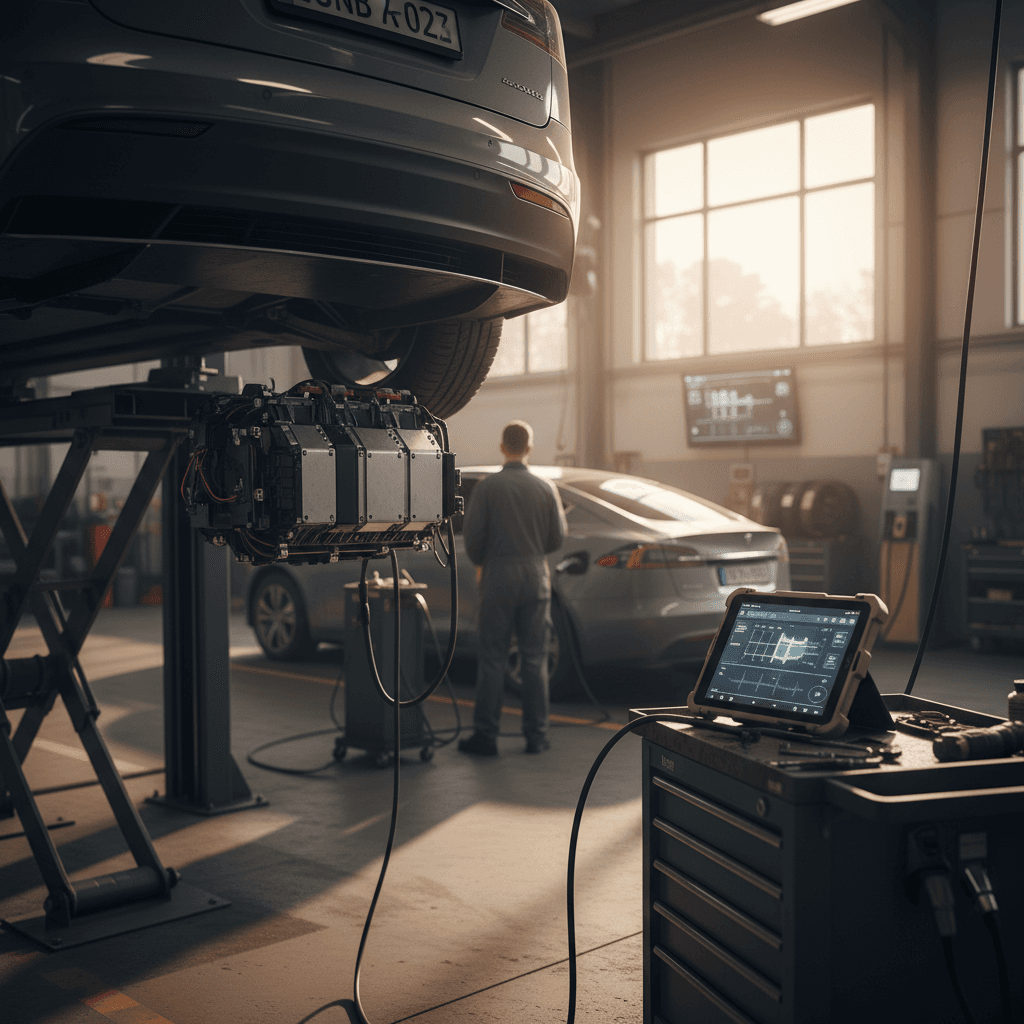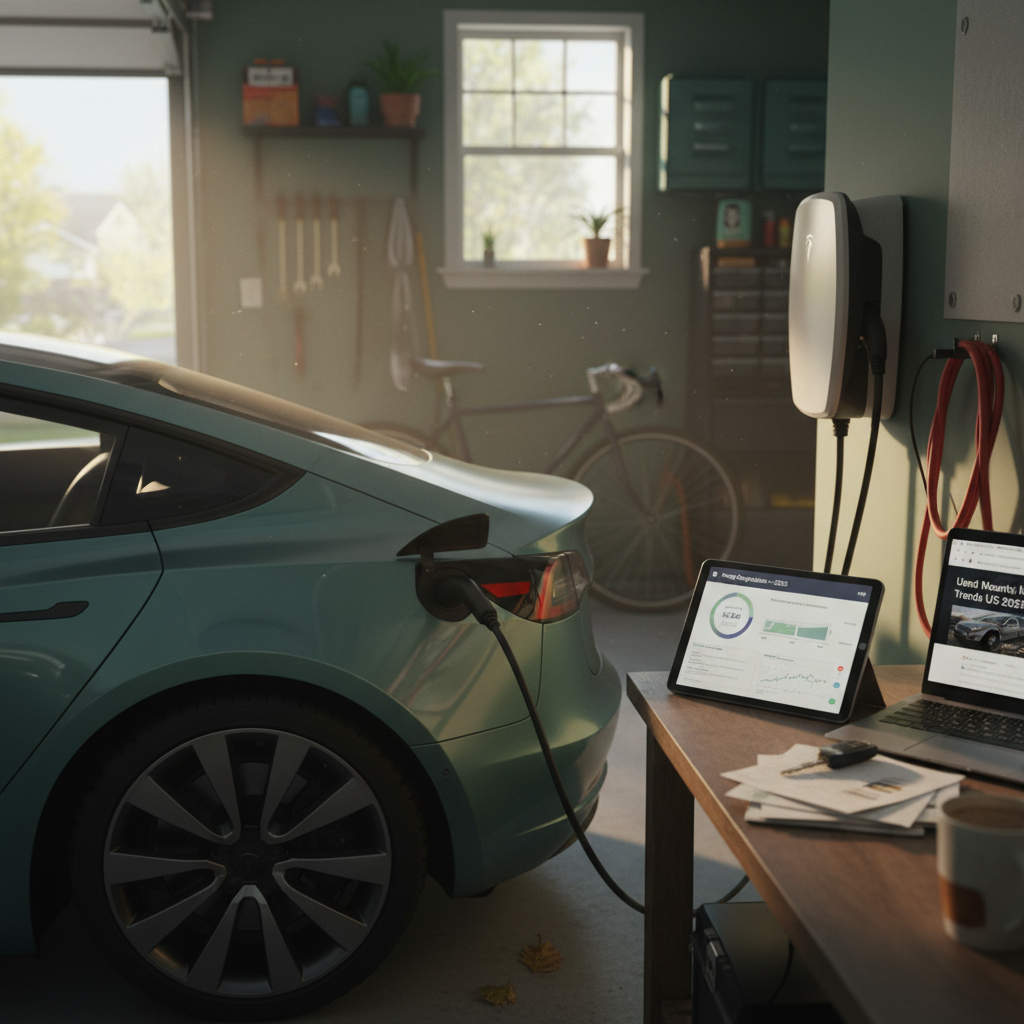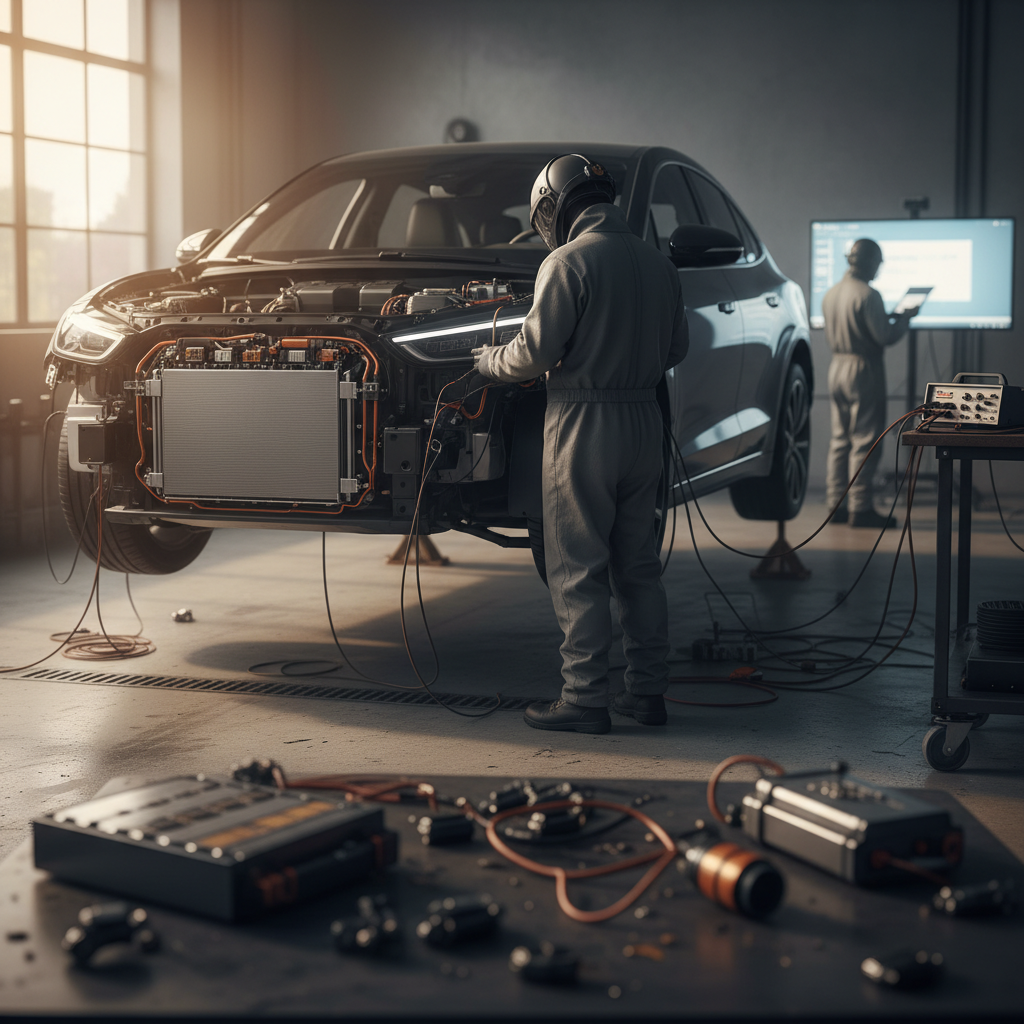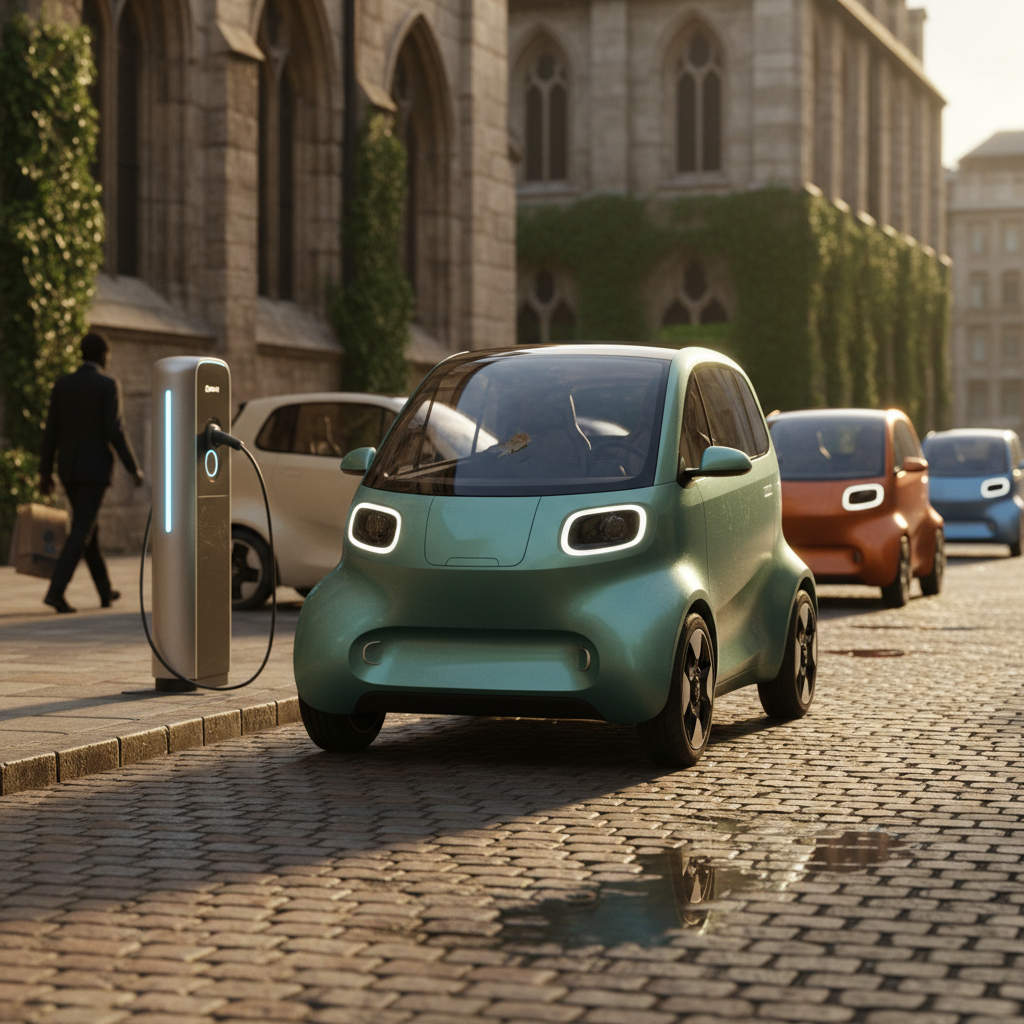If you type “electrical mechanics near me” into a search bar as an EV owner, you’ll quickly find out something uncomfortable: not every shop that can swap an oil filter is prepared to diagnose a high‑voltage battery or a failing onboard charger. As electric vehicles spread across U.S. roads, finding the right electrical mechanic near you has become a real ownership skill, especially if you drive a used EV.
The technician gap is real
Why “electrical mechanics near me” matters more for EV owners
For gas cars, almost any neighborhood shop can handle the basics. With EVs, the stakes and the systems are different. A modern electric vehicle is built around a high‑voltage battery pack, inverters, power electronics, and miles of low‑voltage wiring that support everything from driver‑assist cameras to thermal management. Getting the wrong mechanic can mean misdiagnosed problems, long delays waiting for the “EV specialist” in the back, or even safety issues if high‑voltage procedures aren’t followed.
The EV technician shortage in numbers
When you search for electrical mechanics near me, you’re really looking for two things at once: someone who understands both general automotive systems and the realities of high‑voltage EV platforms. As more used EVs change hands, that hybrid skill set is becoming as important as price or location.
What makes an EV electrical mechanic different from a regular mechanic
Traditional auto mechanic
- Focuses on engines, transmissions, exhaust, and fluids.
- Uses scan tools that mostly read OBD‑II engine and emissions data.
- Comfortable with 12‑volt electrical systems, but may see high‑voltage as fringe work.
- Training often emphasizes mechanical wear items: belts, pumps, gaskets, and fuel systems.
Great for tires, suspension, brakes, and many body repairs, less so for traction batteries or inverter failures.
EV‑savvy electrical mechanic
- Trained on high‑voltage safety, lockout/tagout, and insulated tools.
- Understands battery management systems (BMS), inverters, onboard chargers, and DC‑DC converters.
- Uses factory or enhanced diagnostic software to read EV‑specific data: cell voltages, thermal events, contactor status, and more.
- Often certified by OEMs, ASE, or EV‑specific programs and stays current as EV platforms evolve.
This is the person you want any time the issue touches high‑voltage, battery health, or charging behavior.
High‑voltage is non‑negotiable
How to search for EV‑friendly electrical mechanics near you
Typing “electrical mechanics near me” into Google or Apple Maps is only a starting point. To actually find someone who can service an EV, you’ll need to layer in a few extra filters and tools.
Three smart ways to find EV‑ready mechanics near you
Combine these methods instead of relying on a single search result.
Use map search filters
Start with Google Maps or Apple Maps:
- Search for terms like “EV mechanic near me” or “hybrid & EV repair”.
- Look for phrases such as EV certified, electric vehicle specialist, or specific brands in the listing.
- Read the most recent reviews and sort by “newest” to see if EV owners mention good experiences.
Check charging & EV apps
Some EV apps and forums highlight EV‑friendly shops:
- Owner communities on Reddit, brand forums, or Facebook groups often keep local shop shortlists.
- Charging apps sometimes include nearby repair facilities around popular public chargers.
- Look for repeated shop names in EV‑focused threads, that’s usually a good sign.
Lean on the dealership & networks
If your brand has a dealer nearby:
- Ask the EV service advisor which independent shops they respect in the area.
- Call your insurance company or roadside‑assistance provider for shops used in EV claims.
- For used EVs bought from Recharged, ask your specialist for local repair options they’ve seen deliver good results.
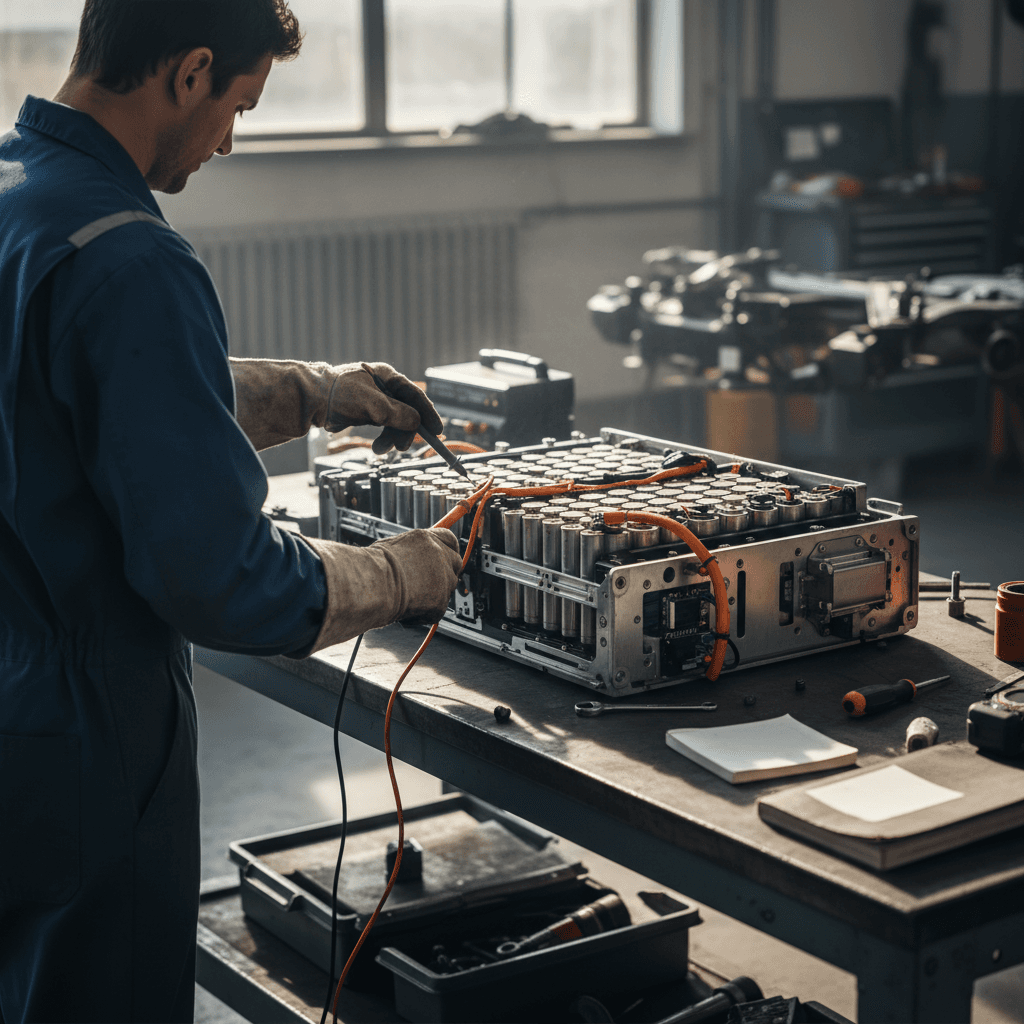
Search like an EV owner, not a gas driver
Certifications and credentials to look for
When you’ve narrowed down a list of shops, the next step is verifying whether their technicians are actually qualified to work on your EV. That’s where certifications and training programs matter.
Key credentials for EV‑capable electrical mechanics
You won’t see all of these at every shop, but the more EV‑focused training you find, the more confident you can feel.
| Credential / Program | What it Covers | Why it Matters |
|---|---|---|
| ASE L3 or xEV Safety | Advanced EV/hybrid diagnostics and high‑voltage safety. | Shows the tech has training beyond basic gasoline drivetrains. |
| OEM EV training (Ford, GM, Hyundai, etc.) | Brand‑specific platforms, software, and repair procedures. | Critical if you drive that brand and need warranty‑correct repairs. |
| EV‑specific safety courses | High‑voltage lockout/tagout, PPE, safe battery handling. | Reduces risk of injury or improper handling of your traction battery. |
| Charging & EVSE training | Onboard chargers, home chargers, and communication faults. | Useful if you’re chasing charging errors or intermittent connection issues. |
| ADAS calibration training | Camera, radar, and sensor alignment after repairs. | Important for EVs with lane‑keeping, adaptive cruise, and other driver‑assist tech. |
Ask which of these apply to the technicians who will actually touch your car, not just the shop owner.
Green flags when you call a shop
Questions to ask before you book an appointment
Seven questions to vet an electrical mechanic for your EV
1. How many EVs do you service each month?
You want a shop where EVs aren’t a once‑a‑quarter surprise. A specific number, even if it’s modest, is better than a vague “we’ve seen a few.”
2. Which EV brands are you most familiar with?
If they regularly see your make and model, they’re more likely to own the right diagnostic software and special tools.
3. Are your techs trained on high‑voltage safety?
Listen for mention of specific training, PPE, or certifications. If the staff dodges the question, move on.
4. Do you handle battery and charging issues in‑house?
Some shops sublet EV battery work to specialists. That isn’t a deal‑breaker, but you should know who’s really doing the job.
5. What diagnostics fee do you charge for EVs?
Many shops charge a higher diagnostic rate for EV electrical work. Ask if this is flat or applied toward the repair if you proceed.
6. Will you share a written estimate and photos?
Clear documentation makes it easier to compare quotes and, if needed, get a second opinion remotely.
7. Do you guarantee EV parts and labor?
Ask about warranty length on electrical components and whether there’s different coverage for high‑voltage work.

Common EV electrical repairs and typical costs
The good news: EVs have fewer moving parts than gasoline cars, so some traditional failure points disappear. The less‑good news is that when electrical issues crop up, they can be specialized and sometimes expensive. Actual prices vary by region and brand, but these ballpark numbers can help you sanity‑check quotes from electrical mechanics near you.
Typical EV electrical repairs and what you might pay
These are rough, non‑binding ranges for out‑of‑warranty vehicles in the U.S. Always confirm with your chosen shop.
| Repair Type | What It Involves | Approximate Cost Range (USD) |
|---|---|---|
| High‑voltage battery health diagnostic | Deep scan of battery management data, state of health (SoH), and fault history. | $150 – $400 |
| 12‑volt battery replacement in EV | Replacing auxiliary battery that powers accessories and computers. | $200 – $450 |
| Onboard charger or DC‑DC converter repair | Diagnosing and replacing modules that manage charging and low‑voltage power. | $900 – $2,500+ |
| Charge port or inlet repair | Fixing damaged pins, seals, or sensors in the charging inlet. | $300 – $1,000 |
| HV cable or contactor repair | Addressing insulation faults or failed contactors between pack and inverter. | $800 – $3,000+ |
| HVAC or battery cooling issues | Servicing electric compressors, coolant loops, or battery thermal components. | $500 – $2,000+ |
| High‑voltage pack replacement (partial or full) | Replacing modules or the entire traction battery, usually at dealer level. | $5,000 – $15,000+ depending on pack size and brand |
Battery pack replacements are the outlier: they can run into five figures, which is why accurate battery health data matters so much when you buy used.
Don’t authorize major work without data
Dealers vs independent shops vs mobile EV mechanics
Once you’ve found a few options, you still need to choose the right type of provider. Each has strengths and trade‑offs depending on the age of your vehicle, the repair, and your tolerance for cost versus convenience.
Comparing your EV service options
Think about warranty status, complexity of the issue, and how quickly you need the car back.
Franchise dealer
- Best for in‑warranty repairs, recalls, and complex software or battery work.
- Access to the latest factory tools, updates, and technical bulletins.
- Often more expensive hourly rates and longer lead times.
If your EV is newer or still under warranty, start here for anything high‑voltage.
Independent EV‑savvy shop
- Often more flexible pricing and schedules.
- Great for out‑of‑warranty electrical issues, wear items, and upgrades.
- Quality varies widely: vet certifications and EV experience carefully.
Your best long‑term partner if you plan to keep a used EV past warranty.
Mobile EV mechanic
- Performs basic diagnostics, 12‑volt work, and some HV isolation checks at your home or office.
- Convenient for busy owners or simple issues that don’t justify a shop visit.
- Limited tools and no lift, so complex repairs still go to a physical shop.
Ask how they handle escalation if your issue can’t be resolved on‑site.
Used EVs need a strategy, not just a shop
How Recharged helps you with mechanics and battery health
You still need a local electrical mechanic near you, but you don’t have to go into the search blind. Recharged is built around making EV ownership simpler and more transparent, especially when it comes to repairs and battery health.
- Every vehicle listed on Recharged includes a Recharged Score Report with verified battery health, helping you avoid cars with hidden degradation before you ever see a lift bay.
- You get fair market pricing on used EVs, which helps you budget realistically for future maintenance instead of stretching your payment to the limit.
- Recharged’s EV‑specialist team can help you interpret scan reports and estimates from local electrical mechanics, so you understand what you’re authorizing.
- If you’re trading in or selling, Recharged can provide an instant offer or consignment, giving you options if a major repair quote makes keeping the car less attractive.
- With a fully digital experience and an Experience Center in Richmond, VA, you can get expert guidance even if you’re shopping from across the country.
Use the Recharged Score as your second opinion
EV owner checklist before you drop off your car
Once you’ve picked an electrical mechanic near you, a little preparation goes a long way. It shortens diagnostic time, keeps communication clear, and helps protect your wallet.
Pre‑visit checklist for EV service
Document the symptoms clearly
Note when the problem appears (charging, driving, pre‑conditioning), what warnings show on the dash, and whether it’s reproducible. Screenshots of apps and photos of error messages are gold.
Bring your charging history
If you use a home charger or public network app, export recent sessions. Charging speed, failures, or repeated faults can point your electrical mechanic in the right direction quickly.
Share prior repair or battery reports
If you bought your EV through Recharged, bring your <strong>Recharged Score Report</strong>. Otherwise, print or save any past dealer or shop invoices related to electrical issues.
Confirm the scope and diagnostic fee
Before you hand over the keys, get a written or texted confirmation of the diagnostic charge, and whether it’s credited toward the repair if you move forward.
Set contact preferences and limits
Tell the shop how to reach you and at what dollar amount they need your approval before ordering parts. This prevents surprise bills.
Ask about timelines and parts availability
EV‑specific parts can take longer to arrive. Ask whether your car will be drivable in the meantime or if you should plan for alternate transportation.
FAQ: finding electrical mechanics near me for EVs
Frequently asked questions
Key takeaways for finding an EV mechanic near you
Searching for electrical mechanics near me used to be simple. In 2025, with EVs on the road in every U.S. zip code and a real shortage of trained technicians, it’s become a more strategic decision. The right shop combines high‑voltage training, brand‑specific experience, and clear communication about diagnostics, pricing, and timelines.
- Use smarter local searches that include “EV” and your brand, then cross‑check reviews and EV forums.
- Verify training and certifications so you’re not letting a generalist experiment on your battery pack.
- Compare quotes for big electrical jobs and ask for data, fault codes, photos, and written estimates.
- Plan your long‑term service strategy when you buy a used EV, not after the first warning light appears.
- Leverage Recharged’s Recharged Score Report, financing, trade‑in options, and EV‑specialist support so repairs fit into your broader ownership and budget plans.
Do that, and “electrical mechanics near me” becomes less of a panic search and more of a known part of your EV playbook, one that keeps you driving confidently, whether you’re buying your first used EV or adding another electric car to the driveway.
